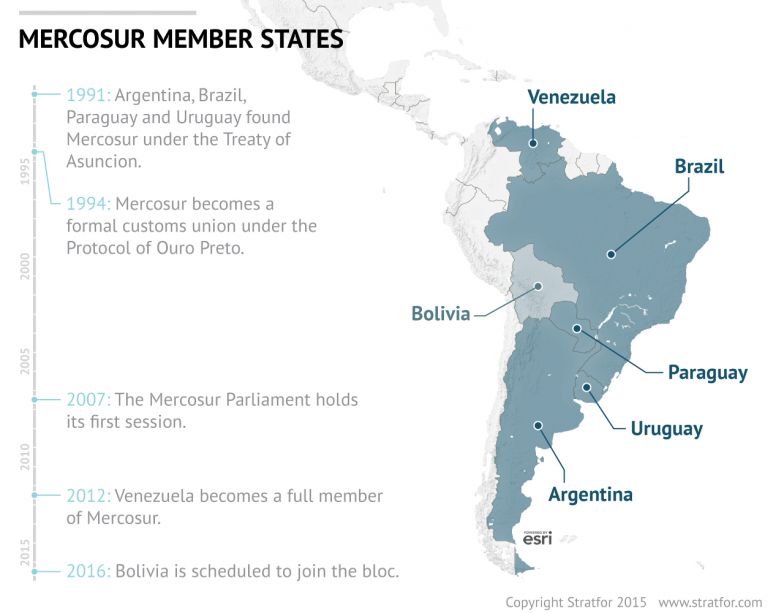
The Common Market of the South (Mercosur) is a customs union bloc that united its member countries behind a common tariff barrier promoting mutually beneficial economic and trade policies. But in 2016, the block will likely undergo substantial changes. Driven by an extended economic slowdown, Argentina has opposed Brazil, Paraguay and Uruguay in their effort to sign a lucrative trade deal with the European Union. As a result, Mercosur will inevitably adjust its framework and the way it handles trade.
Mercosur law stipulates that its members must negotiate any free trade deals with countries outside of the bloc collectively rather than individually. Argentina has been thwarting free trade negotiations between Mercosur and the European Union to mitigate its own growing balance of payments crisis. Argentina's obstruction of the EU free trade deal has strained its working relationship with Brazil, Uruguay and Paraguay, which all desire an EU trade agreement to promote export growth and to expand export markets. In response, Uruguay previously floated the concept of a "two-speed" track to negotiating free trade agreements, which would allow some Mercosur members to advance faster than others in trade deals with external entities such as the European Union.
Argentina does not want to increase imports and go deeper into a negative balance of payments, which an EU trade agreement would likely prompt. The only way for Argentina to ease its balance of payments concerns is for foreign currency to start flowing back into the country, which would likely take several years. Mercosur member states have acknowledged this; Uruguayan Economy Minister Danilo Astori recently said Argentina is the "main obstacle" to realizing a free trade agreement with the European Union. Uruguayan Foreign Minister Rodolfo Nin Novoa has also said that Montevideo will push for a multi-speed approach in the event that the new Argentine leader does not support the deal. Brazil, meanwhile, is taking a more careful approach to the two-track proposal, waiting for the new Argentine government to take shape. Still, Brazil and other Mercosur states will likely push the economic bloc closer to an EU agreement in the coming year.



